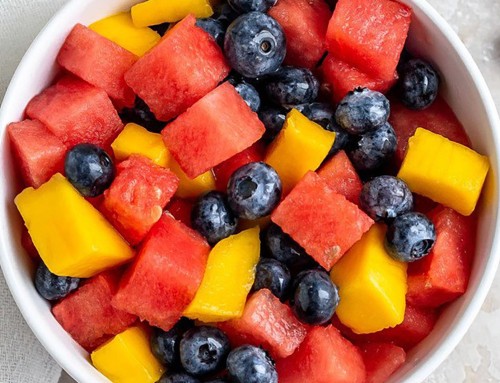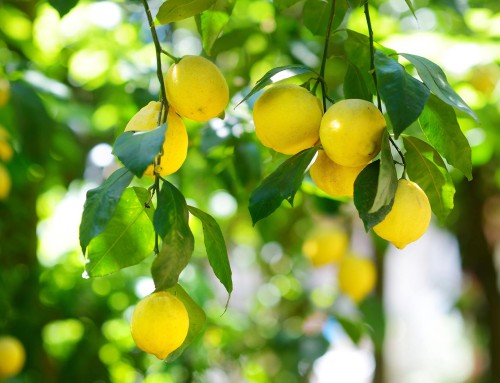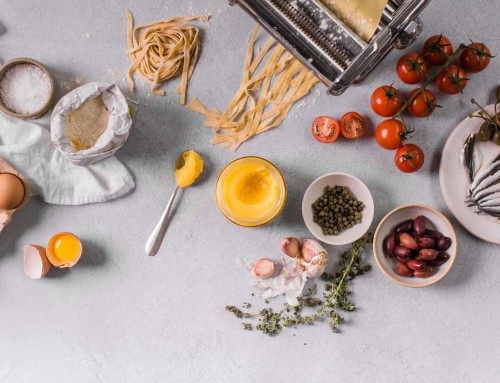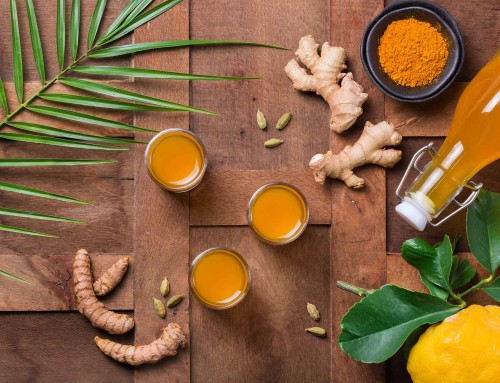What to Favour or Avoid in Heatwaves
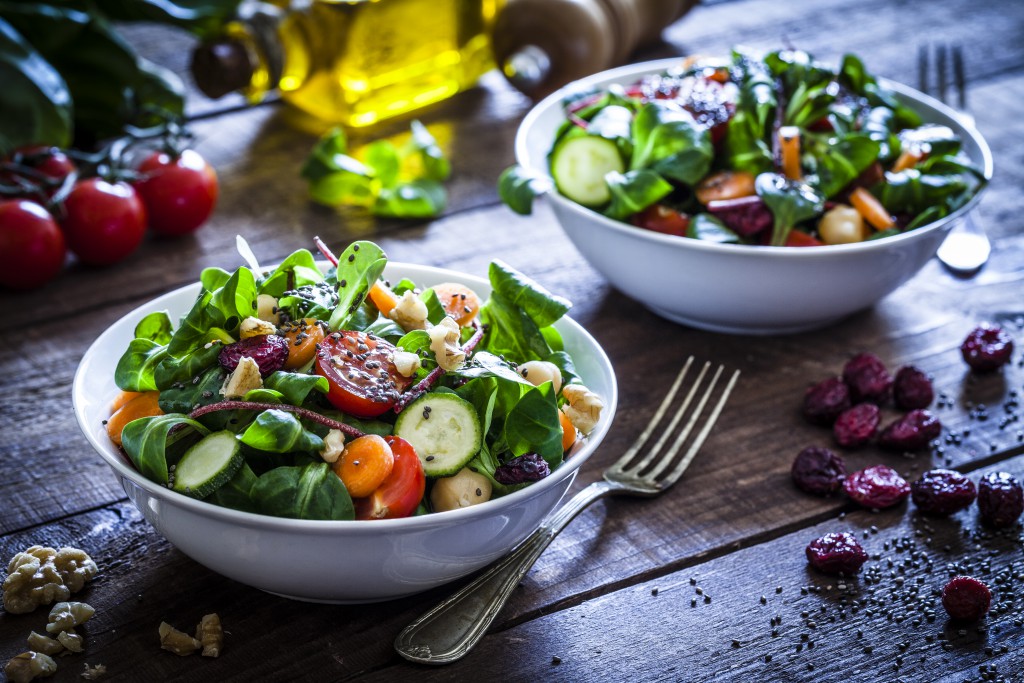
With more heatwaves predicted over the next weeks, it may be helpful to consider how to optimise your food choices to help cool and soothe your mind and body. In addition, let’s consider the Ayurvedic approach to nutrition.
A quote often attributed to Hippocrates is “Let food be thy medicine, and let medicine be thy food.” This sentiment is often echoed by dieticians who suggest we eat a wide variety of foods in order to maximise nutrition from what we eat and drink.
Should I be counting calories?
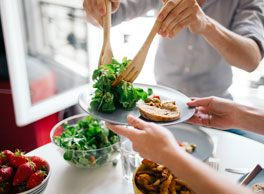
Ayurveda shares this sentiment as food is considered one of the pillars of life. Ayurvedic dietary principles provide an intuitive guide to eating for balance.
Ayurveda does not relate to food through the understandings of carbohydrates, fats, proteins, calories or kilojoules, although these concepts are useful and can be applied to provide a deeper understanding of why certain foods are recommended for the different body types.
How much should I eat?
Even the quantity of food to eat is determined by your unique hand size as it is said to be reflective of the capacity of your stomach, with two hands cupped being the recommended quantity for a main meal.
This simple yet effective technique is a great way of ensuring one eats sufficient quantity while not under-eating or overeating.
Tell me about Ayurveda’s approach to nutrition

When our body is balanced Ayurveda explains we naturally choose foods that are most suitable for us; automatically taking into consideration, the season, time of day, our body type and current needs. You may well ask, how does the body know what food and drinks to choose?
Ayurveda explains that food contains key tastes and qualities of food. When we eat the body naturally recognizes theses taste and qualities in our food and guide our choices in the moment, based on our unique needs. Isn’t that easier!
Taste is understood to fall under 6 categories: sweet, sour, salty, bitter, astringent, pungent. Food qualities are understood to also fall under 6 categories.
Tell me about the 6 tastes
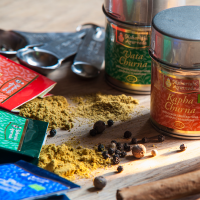
For example, taste is derived from the five elements – air, space, fire, earth, water. Each taste exhibits different qualities, and so it affects each mind-body type in a different way.
With a little knowledge about each dosha, it is not difficult to identify that a dry and spindly plant is Vata-increasing; a hot and spicy plant stimulates Pitta; and accordingly, a succulent, and moist plant will encourage Kapha. The principle of ‘like increases like’ applies.
Ayurveda recommends that to achieve balance of the body and mind, each meal should contain all 6 tastes; this healing principle also makes meals taste great! One way to easily achieve this is by cooking with or sprinkling over savoury food the tasty churnas or aromatic spice blends that help to balance the mind and body.
Try Pitta Churna during Summer and early Autumn, Vata Churna during later Autumn and Winter and Kapha Churna during the Spring season. These are a carefully blended combination of balancing spices that are very tasty!
What to favour or avoid
When heatwaves are predicted, let’s consider how to optimise your digestive power, food choices, and lifestyle to help cool and soothe your mind and body.
Pitta dosha is known as the hot dosha and is composed of Fire and a little Water. Pitta is concerned with your body’s metabolism and is responsible for body temperature, digestion and metabolism. It is the dosha responsible for the processing of food, air and water and converting them into energy.
The qualities of Pitta are oiliness, heat, warmth, sharpness, liquid quality, sourness, movement, flow, pungency. Keeping these qualities within a comfortable range for you is what determines your balance or imbalance of Pitta dosha.
Digestive support
Because summer is a time of heat Pitta dosha can become increased when extreme heatwaves occur. This impacts digestion which can do with support during Summer for optimal nourishment.
As appetite decreases in summer be aware to eat moderately so you do not overeat. While favouring cool food and drinks avoid ice cold drinks and foods as they shock the body. It is important to not douse the digestive fires with cold liquids after a meal.
Herbal Help

To support digestion take 2 tablets of Herbal Digest (MA927) prior main meals. Herbal Digest supports the five main digestive fires supporting a regular appetite, freedom from cravings, helping digestion to feel more light and comfortable. It includes Pomegranate Seeds which helps balance and stimulate both the appetite and the process of digestion. The seeds are processed in the traditional way to maximizes their effectiveness.
Too many hot, spicy foods will tend to cause an over-accumulation of Pitta in your digestive tract and excess stomach acid. The 17 herbs in Gastro Support (MA320) work synergistically to help keep stomach acids in balance.
What should I avoid or favour?

During Summer Ayurveda recommends you favour sweet, bitter and astringent foods that are dry, cooling and moderately heavy. So let taste be your guide and favour lifestyle choices that help to reduce excess heat and increase coolness. Your body and mind will thank you!
Favour
- Sweet juicy fruits especially pears, persimmons and fruit juices, aloe vera juice and plenty of room temperature water and cooling herbal teas such as Pitta Tea, Peppermint Tea and Camomile Tea.
- Ensure you drink regularly in order to stay well hydrated when the weather is hot.
- Include in your diet the cooling and soothing flavour of rose in Rose Petal Jam, Rose water in milk or in a fresh lassi to which rose water has been added. ½ cup of Aloe Vera Juice is also useful daily when the weather is hot.
- Use Ghee in your diet and limit intake of salt
- Regular mealtimes and always eat when hungry – don’t skip meals
- More neutral tastes with less spice and garnish with sprigs of parsley, coriander and parsley.
- Drink Pitta tea and use Pitta Churna in your savoury meals
- Walking or exercising during the cooler times of the day, in natural environments, especially water. Walk in the moonlight.
- Sweet and cooling aromas such as rose geranium, jasmine, camomile and sandalwood.
- Maintain or regain inner calm with meditation and yoga.
Avoid
- Ice cold food and drink.
- Excess sour, salty and spicy foods, alcohol, caffeine or fasting.
- Acidic foods like tomatoes, vinegar and all fermented food or drinks.
- Baking soda and foods leavened with baking soda.
- Sesame, linseed and aged cheeses.
- Artificial colours, preservatives and pesticides.
- Chlorinated water for drinking or washing.
- Toxins like alcohol, nicotine or recreational drugs.
- Excess sun exposure.
- Situations that cause frequent anger or frustration.
- Violent movies, tv shows or news shows.
- Late bedtimes – aim to be in bed by 10pm most nights.
As a general rule focus on what increases feelings of contentment, happiness or joy and notice how much better you feel even when the weather is hot!
Wishing you the bliss of balance
Linda Sinden, Maharishi AyurVeda Consultant

Linda Sinden has been a practising Maharishi Ayurveda Consultant since 1990 and is a regular contributor to our health articles. She has a practice in Auckland, New Zealand and also provides phone or Skype sessions for those who need assistance, but don’t have a consultant in their vicinity.
Email: lindasinden@orbislife.co.nz
Mobile: +64 212237525
Skype: Linda.Sinden
DISCLAIMER: The information in this document is presented for the sole purpose of imparting education on Maharishi AyurVeda and neither the information nor the products are intended to diagnose, treat, mitigate, cure or prevent any disease. If you have a medical condition or are pregnant or lactating, please consult a health professional and it is recommended that you speak with your physician before making significant changes to your diet or routine.


